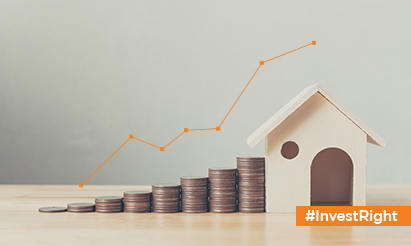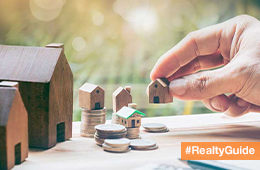Things to consider before investing in real estate
Real estate is a “real property” in the form of land and buildings. It is a legal term to identify a royal grant of estate land. Real estate is a better long-term investment as compared to gold, stocks, and mutual funds.
The most common type of real estate or the one which is familiar to all individuals is housing. It gives you a relatively low amount of risk as the property value increases with time. Due to new technologies, real estate is seeing an upsurge in demand. Experts said that real estate emerged as one of the safest options for investors during the COVID-19 pandemic.
This may sound good but, not to mention, it is necessary to consider a few things in mind before investing in real estate.
1.Do thorough research
You need to look into the type of property you are investing in. It should not only give you a relatable outcome but should also fit into your budget. You should carefully check the background of the property, its nearby areas, and whether the land is fit for construction. You should also do a background check on developers and track their records. It is also necessary to consider whether the property is fulfilling all the legalities or not. Once you satisfy the criteria, then only you should think of investing in the property.
2. Calculate the budget beforehand
Calculating all your expenses beforehand is a must to consider while investing in real estate. Knowing your budget helps you narrow down the property you are willing to afford in terms of space and location. It is advisable to keep up the budget within your loan repayment capacity to avoid running out of expenses when needed.
3. Determine location
Have a long-term perspective while choosing a location. Experts say that location is vital to the value of your property. If you want to invest in a residential space, then amenities like bus stops, schools, hospitals, all these connectivity should be taken into consideration. Whereas, if you want to invest in commercial space, proximity to airports, warehouses, ports, etc., will be beneficial.
4. Purpose of your investment
Be clear with why you want to invest in a property- do you want regular rental income? for personal use or investment re-value sale. These factors will help you determine whether your investment is for the short term or the long term period.
5. Get an estimated property value
Always get an estimated value in advance and make the decision based on it. There’s no point in buying cheap property and then spending thousands of money on its renovation. Ask your real estate agent to show you the market value of the property you are looking for, go through advertisements or ask about other properties with the same price. This will help you to scale down your choice.
Get familiar with the laws and regulations of the area you’re purchasing a property. It is recommended to hire a lawyer in inconvenient situations, like paying taxes. The lawyer will assist you with the entire process and the procedures to take to avoid paying penalties.
7. Expected return on investment
Every money you invest, what is the return you expect? Draw projections of profits and expenses. Determine expected cash flow from rental incomes, Cost-benefit analysis of mortgage loan, risk analysis before the renovation, is the appreciation is profitable after all analysis; all these considerations will determine whether it’s worth taking the risk or not.
8. Know your credit score
Your credit score influences the type of mortgage interest rate you will get. Few points up and down can bring a huge difference to your mortgage. Therefore, you must ensure that you have a favourable credit score. It is advisable to keep your credit score high.
9. Secure a Down payment
Investment properties generally require a larger amount of down payment than the property itself. Out of the total cost of the property, the down payment of real estate is usually 10%. You can get the expense of down payment through a loan or can arrange funds if you have the resources for it.
10. Keep up with trends.
It is necessary to be up to date in the investment sector, especially in real estate—conditions in the property market change from time to time. Selling a house at high property prices is a good condition, whereas if the property prices are low, then it is an excellent time to buy a property. Thus, before investing in some real estate, perform thorough research to find out prevailing marketing conditions.
Consider working with an experienced partner before entering into the real estate market. Be realistic enough to take risks and spontaneous actions when required. Look for land that offers attractive pricing and generates profits. It is essential to consider certain factors while investing in real estate to help in exponential and incremental growth to your property.
Disclaimer: The views expressed above are for informational purposes only based on industry reports and related news stories. PropertyPistol does not guarantee the accuracy, completeness, or reliability of the information and shall not be held responsible for any action taken based on the published information.




